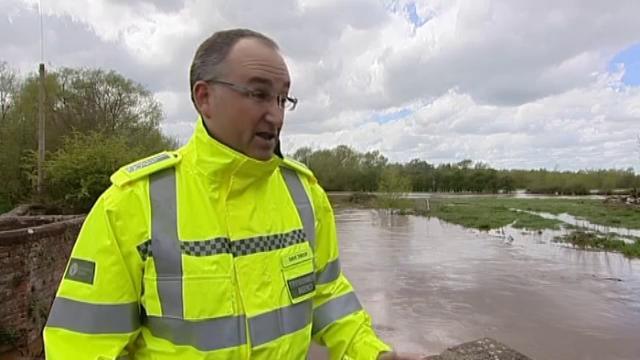Floods getting bigger and more frequent, says river expert
- Published
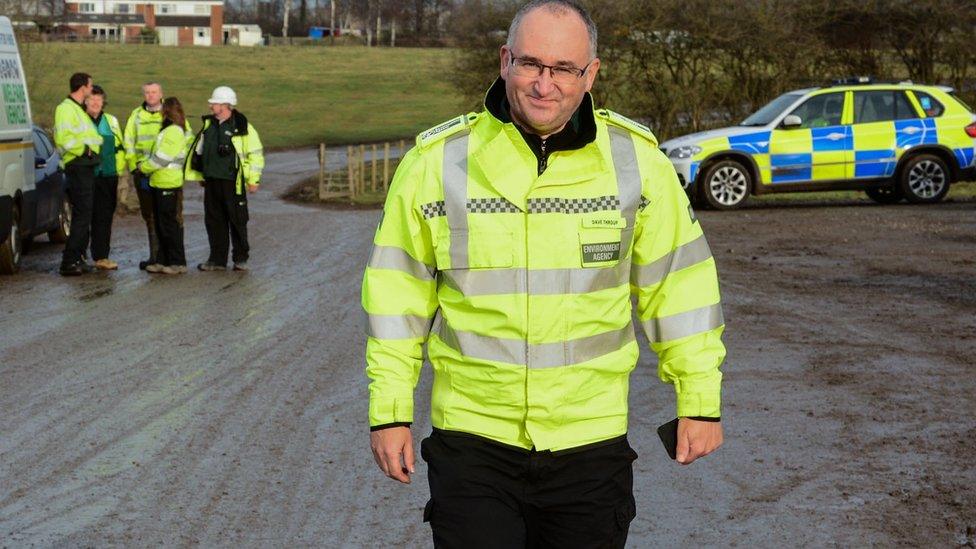
Dave Throup is retiring on 31 December after 21 years with the Environment Agency
Floods on the River Severn and other waterways in the West Midlands are likely to continue getting bigger and more frequent, an expert has said.
Dave Throup retires this month after 21 years with the Environment Agency.
He said climate change was going to continue to have a significant impact on people living and working near the Severn, the UK's longest river.
Ahead of retirement, he reflected on his "great" job and becoming a familiar face in the media at times of flooding.
Mr Throup, 56, began working for the agency on 1 January 2000 but said the floods of 2007 were his "first taste of flooding on an almost apocalyptic scale".
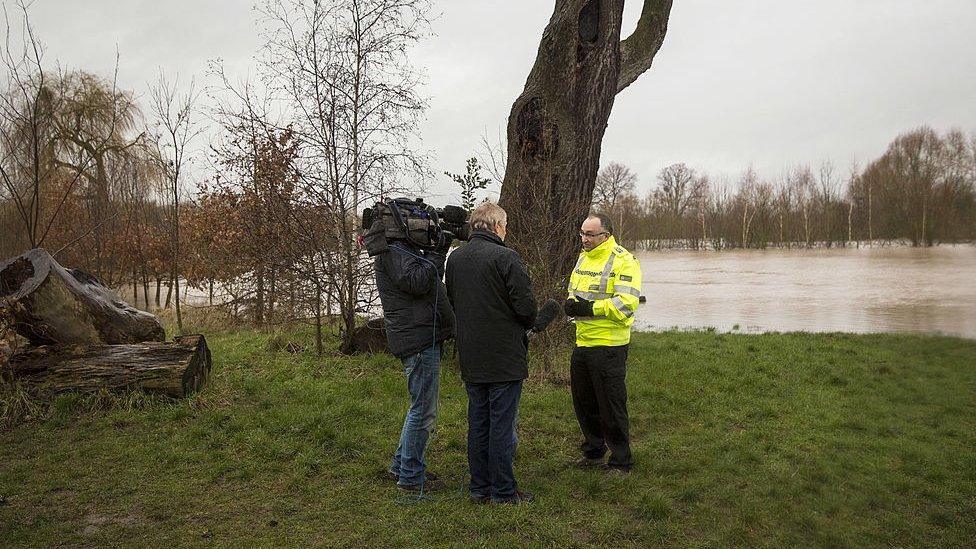
He has become a familiar face on TV during times of flooding in Shropshire, Herefordshire and Worcestershire
"We started seeing rivers do things we had never seen them do before and the penny really started to drop," he said.
"I remember being scared at the time, thinking 'This is not what normally happens'... there were people in the incident room saying 'This can't be right, it just doesn't happen' and some of these people had 30 or 40 years' experience seeing what rivers do.
"Since then, there have been five or six really big flood events and I've travelled all over [the] country, working in flood response in the Lake District, on the east coast and down south as well, and they all see a bit of it."
The largest floods ever recorded on the River Wye, which runs through Herefordshire, happened in 2020, he said.
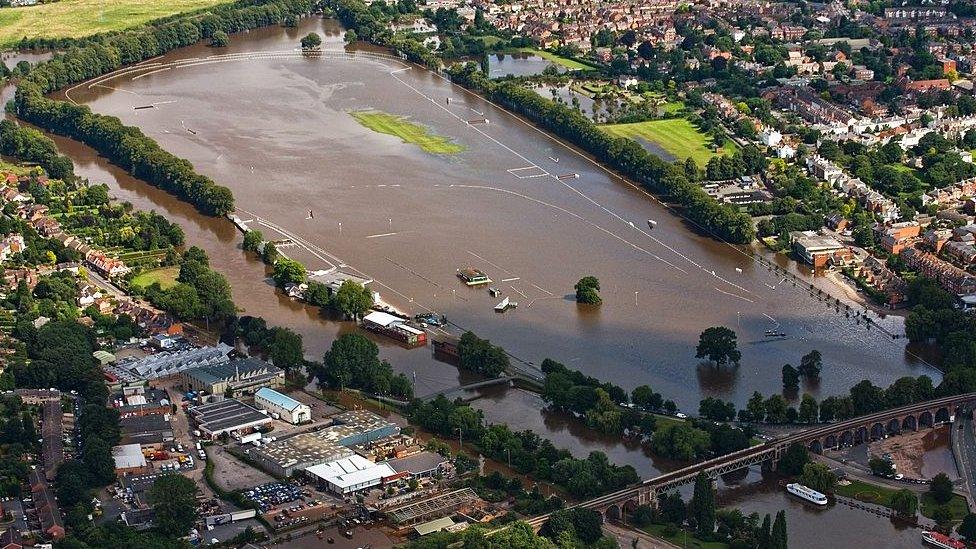
Worcester racecourse is pictured surrounded by water in the 2007 floods
Ahead of leaving his role, he said climate change would continue to have a huge impact on the size and scale of flooding in the West Midlands region.
"We have had multiple big floods... and they are getting bigger and more frequent," Mr Throup said.
"I think the future is very uncertain but we also see very significant impacts from climate-related incidents.
"Flooding is one thing, as floods get bigger and more frequent, but that is only one part of story. I believe we are going to see significant water shortages as well in parts of our geography, 60 to 70% drops, which will not leave enough water for businesses and wildlife.
"These are really significant issues facing society and the speed with which they are happening [is] so scary, the stuff that has happened just in my lifetime has been incredible."

Mr Throup has previously been called to help deal with flooding on Christmas Day
As area manager for Herefordshire and Worcestershire, at times of flooding he is often called to manage incidents, working in the control room for weeks.
In the incident room, he said, people would work eight-hour shifts for five to six days, then have a rest day before continuing.
"With the flooding you tend to get in this part of world, they are quite long lived. So if it is a big flood, you're working 24/7 for three or four weeks... it is full on," Mr Throup said.
"It is quite a pressurised atmosphere in that room, when things happen you have got to react quick.
"Working with other professional partners like police and fire and rescue, it is a good vibe you get going and we do work together very well."
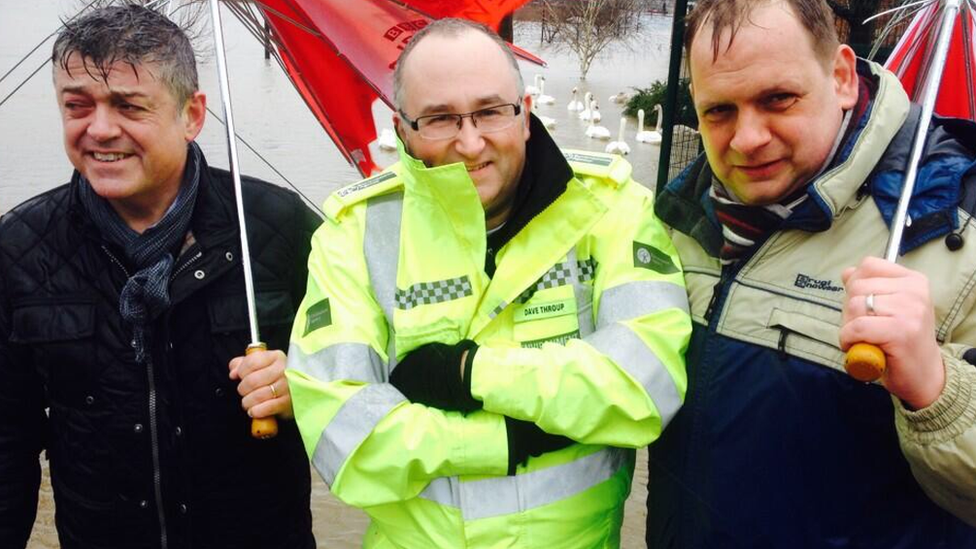
The Environment Agency manager has been a regular face on the BBC, pictured with reporters Phil Mackie and Ben Sidwell
When not working as an incident commander he is a media contact and said, during floods in 2014, he had once done 60 interviews in one day.
"The media world just descends with satellite trucks," he said.
"I spoke to everyone from Kerrang to Al Jazeera and some German TV company who couldn't understand a word I am saying, it was absolutely full on."
The role also involves speaking with those affected by flooding, he said, which could be one of the hardest parts of the job.
"You are taking some of the anger and the heat from it, but that is part of the role," he said.
"You are there in an Environment Agency jacket and people are flooded, they are understandably angry and upset, that is a difficult part of job, but it goes with the territory."
He is also well known for his social media presence, at one time sparking his own fan club, external.
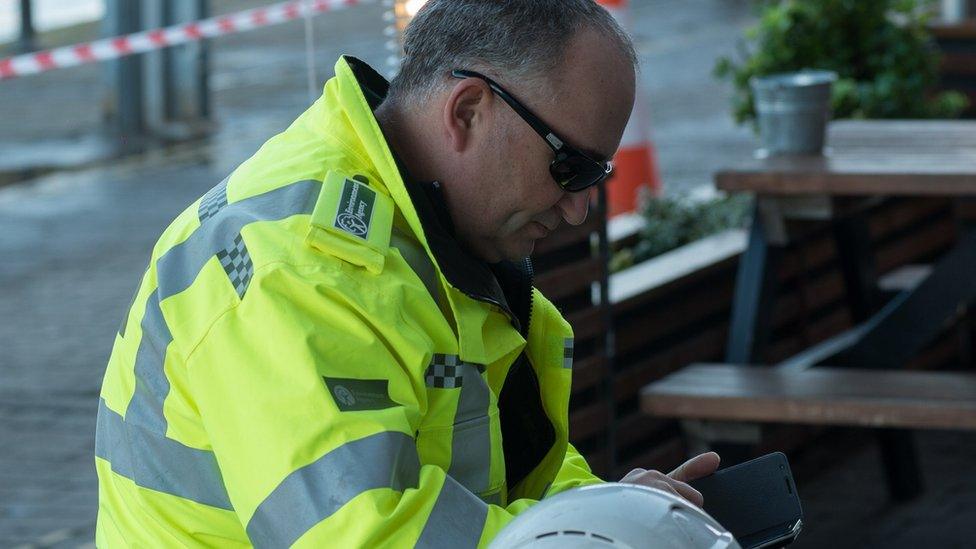
Mr Throup hopes to spend the first part of his retirement travelling
A self-confessed early-adopter of social media, he said he had found it a "very powerful way to be able communicate with people with immediacy".
"I've had fantastic messages since I announced my retirement," Mr Throup said, with more than 200 messages of people wishing him well and more than 1,000 likes.
Mr Throup previously worked for Rentokil, as a planning officer in south Wales and for Severn Trent Water before moving to the Environment Agency.
Born and bred in Worcestershire, it has been "nice to make a bit of a difference in the patch", he said.
Married to Cathryn, with two grown-up children, Mr Throup said he hoped to spend the early part of his retirement travelling, if Covid-19 restrictions allowed.
"My wife is a teacher so we have never been able to travel much," he said.

Follow BBC West Midlands on Facebook, external, Twitter, external and Instagram, external. Send your story ideas to: newsonline.westmidlands@bbc.co.uk, external
Related topics
- Published12 October 2021
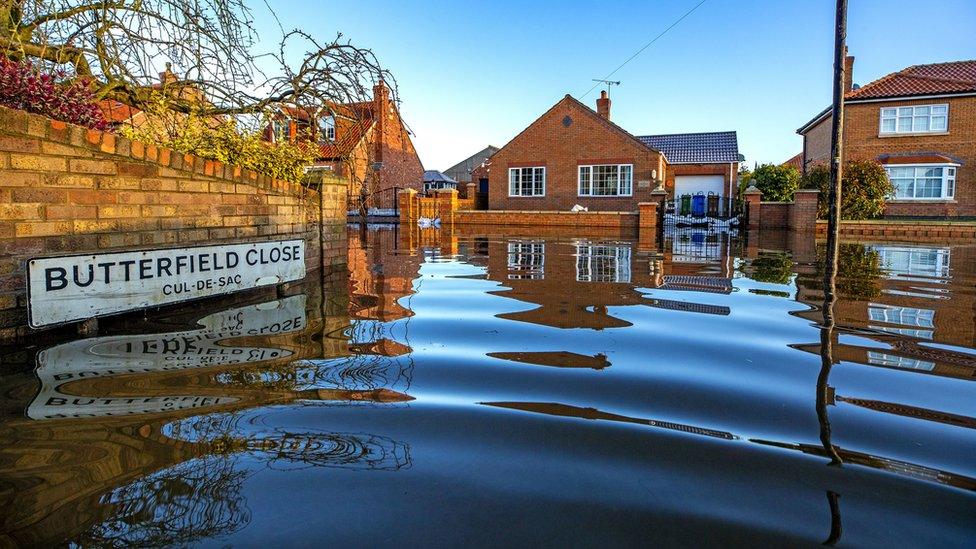
- Published13 February 2014
